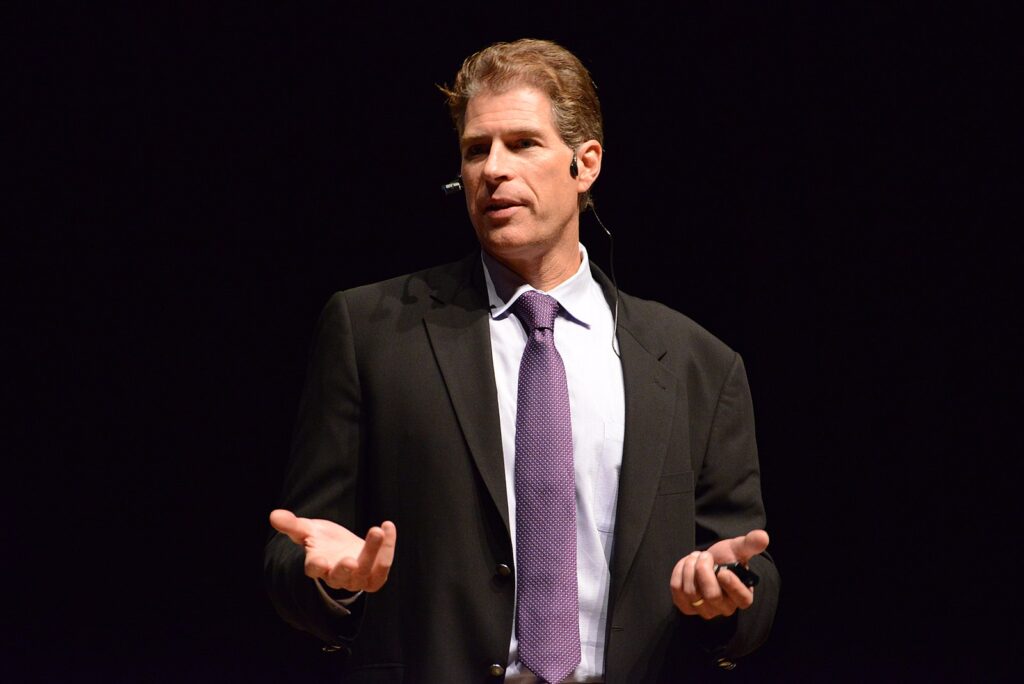Dr. Paul J. Zak is renowned for his groundbreaking work in neuroscience and human behavior. A distinguished professor of economics, psychology, and management at Claremont Graduate University, Zak is one of the most highly cited scientists in his industry and has been published in Nature, PLoS ONE, Harvard Business Review, and Scientific American. His research has been covered by The New York Times, The Wall Street Journal, USA Today, Time, Forbes, and many others.
Zak’s recent study titled “Accurately Predicting Hit Songs Using Neurophysiology and Machine Learning,” published in Frontiers of Artificial Intelligence, points toward a future where AI could predict and influence positive human behaviors at scale. His team’s methods, which involve a form of ‘neuro-forecasting,’ captured high-frequency neural signals and used machine learning to predict hit songs with a stunning 97% accuracy. His previous research had uncovered the brain’s valuation network for social-emotional experiences that he had named “Immersion.” Applying AI to this data not only predicts what moves markets, but also provides feedback so people can live longer, healthier, and happier lives—a potential Zak is passionately advocating.

“Technologies [like AI] can lead to better decision-making, enhanced creativity, and more fulfilling lives,” Zak said.
Where many observers express trepidation about AI’s impact on humanity, Zak offers an optimistic take. He envisions technology as an ally to enhance rather than replace human experiences.
Zak’s study on predicting hit songs is not just a case study in combining research techniques and using advanced analytics, but is also an example of AI’s potential to decode human preferences. The success of his research showcases the power of combining neuroscience and AI, and it encourages a multidisciplinary approach that could span numerous fields in academia.
“My company, Immersion Neuroscience, has released our neuro-technology findings via an emotional fitness app, for free, so that anybody can measure what the brain loves in real time.” Zak said. “Once people have these tools, I hope they use them to create a better society, create better experiences for people, and make people happier.”
Zak emphasizes the importance of adopting AI not just as an automated tool, but also as an empathetic partner in building a more humane future. “It’s about solving problems for tomorrow’s landscape today,” he says, envisioning a world where machine learning and human flourishing advance hand-in-hand.
With the rise of technologies like AI and neuro-technology, the implications of Zak’s work extend into the practical considerations of development and incorporation in society today. By proposing a framework that prioritizes creating technology capable of fostering trust and meaningful connections, policymakers, thought-leaders, and scholars throughout academia like Zak are challenged to consider the societal impact of AI beyond its functional capabilities.
In his academic and professional career, Zak places a high value on IHS’s role of providing a platform for a dynamic exchange of ideas among scholars that push intellectual boundaries. “IHS has funded my research for many years; they have also given me the great privilege of talking to graduate students,” Zak said. “To interact with students and faculty at IHS events who are curious like I am… and I think that’s great.”
“The Institute for Humane Studies is a wonderful group of people who are truly interested in funding and training people to be critical thinkers.”
Dr. Paul J. Zak
By investing in and providing a platform for the brightest minds in their fields like Zak, IHS is building a community where intellectual freedom thrives in harmony with innovative progress. “The Institute for Humane Studies is a wonderful group of people who are truly interested in funding and training people to be critical thinkers,” Zak says. Zak’s work in neuroeconomics—a blend of neuroscience, economics, and psychology—stands a testament to that innovative progress.
Your support for the Institute for Humane Studies plays a pivotal role in investing in scholars like Dr. Paul Zak and helps foster a community where intellectual exploration thrives and impactful research can flourish. To learn more about IHS scholars, programs, and opportunities, visit TheIHS.org.
